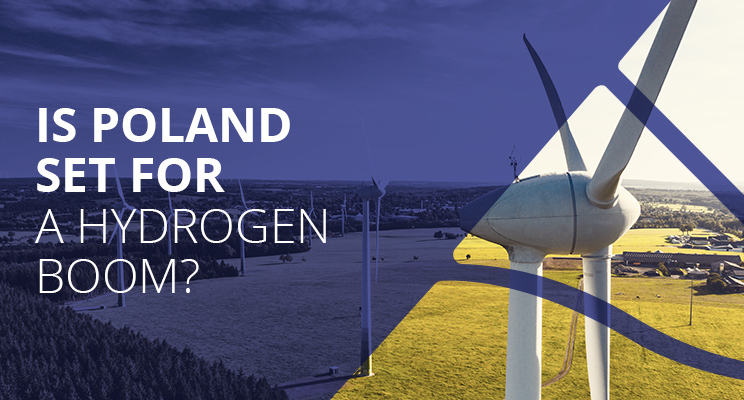
Compressors – the right technology for every challenge
March 23, 2021
Rockfin is working on technologies that will help transform the energy market. For the better.
June 1, 2021In July last year, the European Commission published a hydrogen strategy for a climate-neutral Europe. The strategy’s aim is to stimulate the development of the renewable, green hydrogen sector so that by 2050 it will be a fully zero-emission, widely available source of energy in the EU. Unfortunately, in Poland this energy sector is still in its infancy. One of the reasons for this is the high cost of purchasing appropriate technologies, the lack of Polish producers, the necessary legal regulations relating to safety and the hydrogen market, as well as the unavailability of a subsidy program.
“Currently, demand for hydrogen production solutions in Poland is only just emerging, but with the implementation of a Polish energy policy and an expected Polish hydrogen strategy, the demand for such systems will grow. And it will certainly exceed supply, as there is not a single producer of this type of solution in Poland at the moment,” comments Bartosz Krzemiński President of the Board, Rockfin.
Globally, however, we can already see the beginnings of a hydrogen race. In the middle of last year, Air Products and Thyssenkrupp announced the construction of a five billion dollar installation for the production of hydrogen obtained by electrolysis using renewable energy. The investment located in Dubai would produce a 650 ton of green hydrogen per day. Meanwhile, an Asian Renewable Energy Hub will be built in Pilbara, Western Australia, which will use 16GW of onshore wind and 10GW of solar energy to power 14GW of electrolysers. The cost of the project, which is planned for completion in 2027-2028, is USD 36bn.
“Such high interest in green hydrogen can be explained in two ways. Firstly, it makes it possible to reduce carbon emissions, which is consistent with the policies of countries and many companies aiming to decarbonise their operations. Secondly, the use of hydrogen allows cost optimisation, and this is often the strongest motivation to start working on innovative solutions. The energy sector is no different,” adds Michał Wróblewski, Vice President of the Board, Rockfin.
Another advantage of green hydrogen is the fact that it can be a fairly versatile solution. It can be used in many heavy industries, heat and power plants as well as public transport. The challenge, however, is its production, storage, and shipment.
“Hydrogen is the purest and most widespread element in the universe, but it is also explosive and corrosive, which poses a number of storage and transmission challenges. Because of its potential for use in public transport, many countries, including Poland, would like to produce it locally, rather than relying on shipping, for example,” adds Michał Wróblewski, Vice President of the Board, Rockfin.
Eventually, of course, cars may also use hydrogen. The question is how to build an efficient supply chain of this fuel?
“At Rockfin, we have launched the research and development phase of our in-house solution called Green Box – a hydrogen generator that would be a scalable and modular device designed to produce hydrogen by electrolysis of water. It could be used locally, for example as energy storage for wind or photovoltaic farms or serve as an energy source for public transport vehicles,” Dariusz Mroczka, Head of R&D.
A container construction of Green Box would be suitable for outdoor operations, with standardised dimensions and which would be relatively easy to transport. It would make it possible to provide dedicated solutions that are competitive in terms of both price and lead time. Depending on the selected variant, the Green Box could be equipped with an electrolyser with individually selected operating parameters, a compressor to pressurise hydrogen to the required pressure level (e.g. 350 or 700bar), a water demineralisation system, a hydrogen purification system of up to high purity class required by PEM fuel cells, and a set of storage tanks.
“This is a very exciting and interesting time for the Polish and global renewable energy sector. In Poland, the legal regulations that will allow for selling stored hydrogen and creating guidelines on how to fuel vehicles with this energy source are just taking shape. Therefore, we are working on our solution with even more enthusiasm, although we also hope to cooperate with other representatives in the market. We believe that the development of common solutions and the exchange of know-how and experience will pay off in increasing innovation in Poland’s energy sector,” concludes Bartosz Krzemiński President of the Board, Rockfin.














